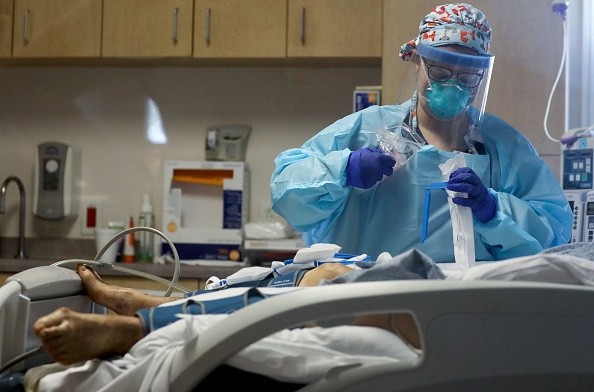COVID-19 Patients: 80% of Them Are Vitamin D Deficient, Study Claims
New research discovered a correlation between a higher risk of COVID-19 and being vitamin d deficient.
According to Healthline, another study found that more than 80% of COVID-19 patients didn't have enough vitamin in their blood. In the new study of the Journal of Clinical Endocrinology & Metabolism, researchers observed 216 COVID-19 patients in a hospital in Spain. The patients were matched to controls from another dataset by the scientists.

Among the observed patients, 82.2% were vitamin D deficient. Besides, the research showed that men had lower vitamin D levels than women.
Aside from the correlation of the coronavirus and vitamin D levels, those people also had higher inflammatory markers, including D-dimer and ferritin. As per the NCBI, those patients were linked to poor coronavirus outcomes.
Patients who are vitamin d deficient had a higher risk of cardiovascular disease and hypertension. The study also revealed that they had stayed longer in hospitals for COVID-19.
Dr. Hans Konrad Biesalski, a professor at the University of Hohenheim, has evaluated the coronavirus and vitamin D. Biesalski said that comorbidities such as diabetes, hypertension, and obesity are associated low vitamin D levels.
"It looks like patients with a poor vitamin D status may have more severe COVID-19," Biesalski told Healthline. However, the latest study hasn't found that relationship.
How vitamin D may help recover from the coronavirus disease
In addition to the correlation between COVID-19 risk and vitamin D levels, people ask how it may protect them or help them recover from COVID-19.
José L. Hernández, Ph.D., of the University of Cantabria in Santander, Spain, and a study co-author said that one approach is to treat and determine vitamin D deficiency, especially those high-risk such as nursing home residents, elderly, and patients with comorbidities, which are the main target population for the coronavirus.
Dr.Jose added that high-risk people for COVID-19 such as the elderly, people in nursing homes, and those with underlying conditions could be treated with vitamin D. In a released statement of Science Daily, Hernandez Said that vitamin D treatment should be recommended in COVID-19 patients that are vitamin d deficient since this approach might be beneficial in both the immune system and musculoskeletal.
Cureus' previous research showed many Americans are vitamin D deficient. Meanwhile, another study notes that vitamin d deficiency is a global health issue.
According to Dr. Michael F. Holick leads the Bone Healthcare Clinic at Boston University. He researched vitamin D and said that Endocrine Society Practice Guidelines don't suggest everyone is screened.
In those who have other medical issues or those with fat malabsorption syndrome (obesity), it is enough to keep tabs on vitamin D levels, Holick told Healthline. On the other hand, infants should get anywhere from 400-1,000 IUs, children 600-1,000 IUs, and adults 600-2,000 IUs daily, the Endocrine Society recommends.
The amount of vitamin D needed to take depends on a person's current vitamin d levels. However, obese adults may require 2-3 times more, noted Holick.
Check these out:
Vitamin D May Help Treat COVID-19, New Research Shows
Fauci Says Take Vitamin D If You're Deficient. How to Know If You Are?
Post COVID-19 Syndrome: A New Mysterious Disease That May Affect Children Even Worse
Subscribe to Latin Post!
Sign up for our free newsletter for the Latest coverage!
© 2026 Latin Post. All rights reserved. Do not reproduce without permission.














